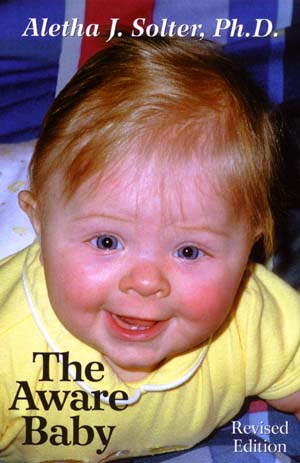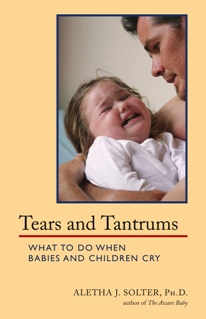Crying spells in six-week-old infant
by Aletha Solter, Ph.D.
Question:
My six-week-old daughter is generally a perfect baby during the day. In the evening, however, she often refuses to eat more than a few seconds at a time. I'm not sure if this is considered to be colic or not, because she only cries incessantly when I try to feed her or when she finally becomes so hungry she can't stand it. I am currently breastfeeding and supplementing with formula. She has refused to eat either way. Usually, she will suck for a few seconds and then pull away and cry, kicking her legs and waving her arms. After a few hours of this, she eventually ends up being hungry enough to eat and fall asleep, but it is frustrating trying to console her in the meantime. My doctor recommended burping her frequently during feedings, but this has not helped. Any suggestions would be appreciated.
Answer:
If your doctor has found nothing physically wrong with your baby, I recommend checking with a lactation consultant to see if your baby is latching on to your breast properly. Perhaps she is having difficulty breathing or swallowing while nursing, or perhaps your milk letdown reflex is not working soon enough, and this is causing her frustration. Perhaps you yourself are feeling tense or stressed in the evening, she she senses this tension. But if she is able to nurse properly at other times and seems to be gaining weight normally, it is worth considering possible emotional reasons for the crying.
It is very common for babies to have crying spells in the evenings, and this crying typically peaks at around six to eight weeks of age. This has been called "colic" but in many cases it probably has nothing to do with stomach pain. Babies may actually benefit from this kind of crying because it helps them release stress. If your baby refuses to eat and wants to cry instead, she could be expressing a need to cry in order to release a build-up of stress. Babyhood is very stressful, even with the best of parenting.
Research has shown that babies who had a difficult birth with medical interventions, or whose mothers had a stressful pregnancy, tend to cry much more than babies who did not experience these traumas. These crying spells seem to help the babies heal from the early traumas.
Another possible cause for crying in infants is overstimulation. Keep your baby in a calm environment, close to your own body as much as possible, and avoid too many transitions and trips outside the home. Even a trip to the grocery store can be overstimulating for a sensitive infant, causing a greater need to cry later on.
When your baby refuses the breast and starts to cry, you can try the crying-in-arms approach. Hold her lovingly while reassuring her of your love. Let her know that you understand her need to release stress by crying and that you are willing to listen. Babies should never be left to cry alone. Allow her to cry as much as she needs to in the safety and comfort of your arms, and refrain from repeated attempts to put a nipple in her mouth if she refuses to nurse at those times. After the crying spell has run its course, you will probably find yourself holding a much more relaxed baby who may then indicate a desire to nurse, to interact with you, or to sleep.
About Aletha Solter:
Aletha Solter, PhD, is a developmental psychologist, international speaker, consultant, and founder of the Aware Parenting Institute. Her books have been translated into many languages, and she is recognized internationally as an expert on attachment, trauma, and non-punitive discipline.
Aware Parenting is a philosophy of child-rearing that has the potential to change the world. Based on cutting-edge research and insights in child development, Aware Parenting questions most traditional assumptions about raising children, and proposes a new approach that can profoundly shift a parent's relationship with his or her child. Parents who follow this approach raise children who are bright, compassionate, competent, nonviolent, and drug free.
For more information about babies and crying, see Aletha Solter's books, The Aware Baby, and Tears and Tantrums
Related articles:

